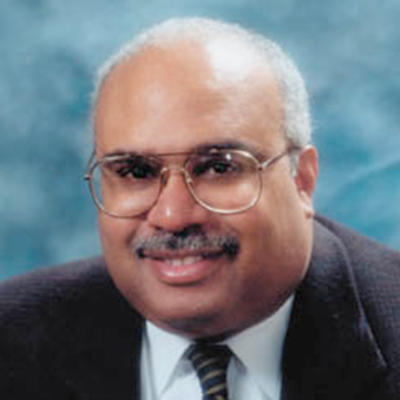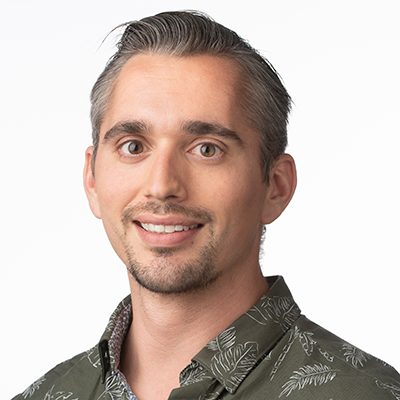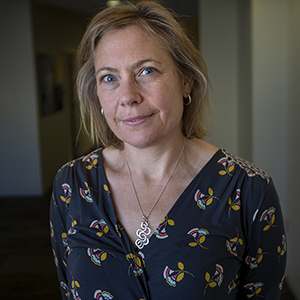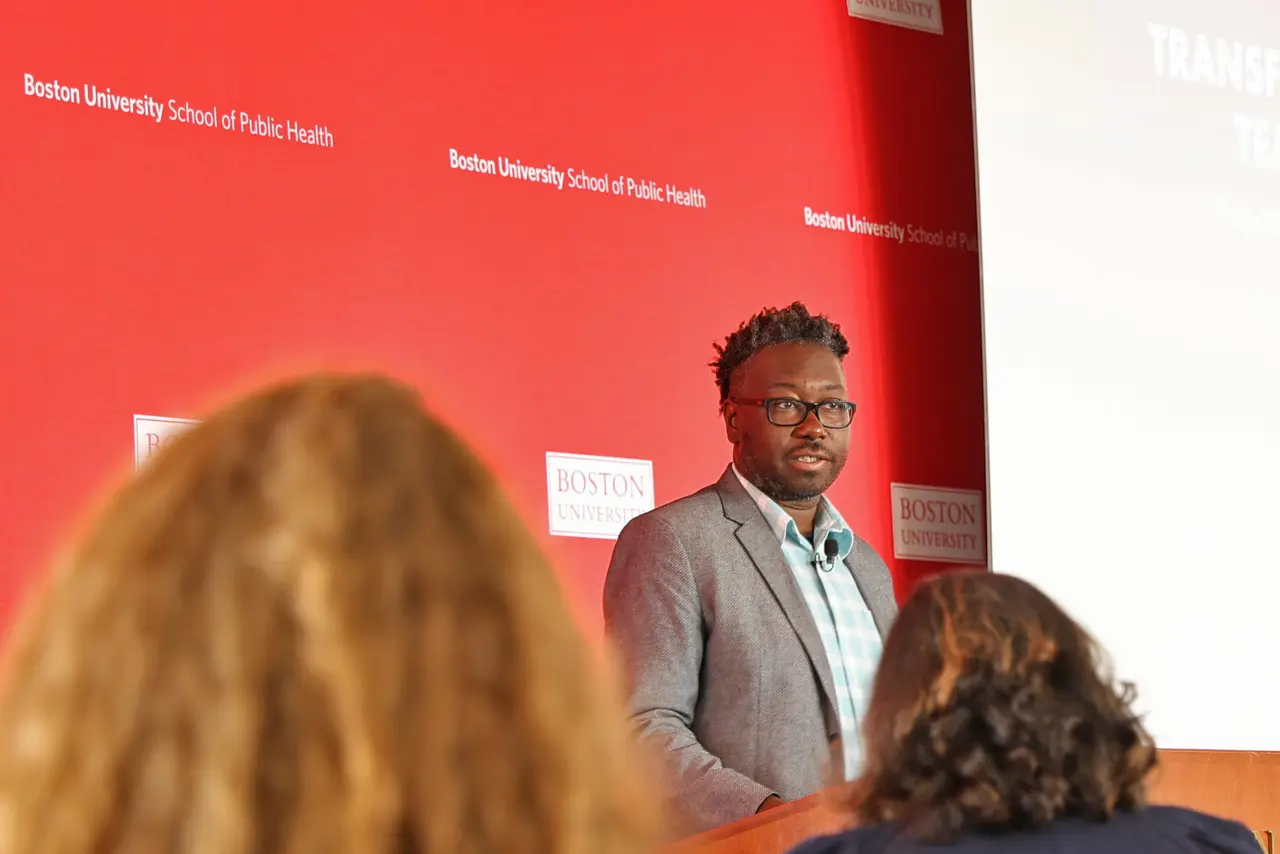Videos
Speakers

Georges Benjamin
Executive Director, American Public Health Association
Georges C. Benjamin is known as one of the nation’s most influential physician leaders because he speaks passionately and eloquently about the health issues having the most impact on our nation today. From his firsthand experience as a physician, he knows what happens when preventive care is not available and when the healthy choice is not the easy choice. As executive director of APHA since 2002, he is leading the Association’s push to make America the healthiest nation.
He came to APHA from his position as secretary of the Maryland Department of Health and Mental Hygiene. Benjamin became secretary of health in Maryland in April 1999, following four years as its deputy secretary for public health services. As secretary, Benjamin oversaw the expansion and improvement of the state’s Medicaid program.
Benjamin, of Gaithersburg, Maryland, is a graduate of the Illinois Institute of Technology and the University of Illinois College of Medicine. He is board-certified in internal medicine and a master of the American College of Physicians, a fellow of the National Academy of Public Administration, a fellow emeritus of the American College of Emergency Physicians, an honorary fellow of the Faculty of Public Health and an honorary fellow of the Royal Society of Public Health.
An established administrator, author and orator, Benjamin started his medical career as a military physician in 1978 where he trained in internal medicine at the Brooke Army Medical Center. In 1981 he was assigned to the Madigan Army Medical Center in Tacoma, Washington, where he managed a 72,000-patient visit ambulatory care service as chief of the Acute Illness Clinic and was faculty and an attending physician within the Department of Emergency Medicine. A few years later, he was reassigned to the Walter Reed Army Medical Center in Washington, D.C., where he served as chief of emergency medicine. After leaving the Army, he chaired the Department of Community Health and Ambulatory Care at the District of Columbia General Hospital. He was promoted to acting commissioner for public health for the District of Columbia and later directed one of the busiest ambulance services in the nation an interim director of the Emergency Ambulance Bureau of the District of Columbia Fire Department.
His academic career has consisted of the full range of academic endeavors from teaching, policy research and academic program development and management. Benjamin has combined his practice and academic experience as an emergency physician with public health to become one of the nation’s experts in public health emergency preparedness.
At APHA, Benjamin also serves as publisher of the nonprofit’s monthly publication, The Nation’s Health, the association’s official newspaper, and the American Journal of Public Health, the profession’s premier scientific publication. He is the author of more than 200 scientific articles and book chapters. His recent book Public Health Under Siege: Improving Policy in Turbulent Times explores the impact of policy on our nation’s health and offers specific actions to improve health and extend life expectancy. He is also the author of The Quest for Health Reform: A Satirical History is an exposé of the nearly 100-year quest to ensure quality affordable health coverage for all using political cartoons.
Benjamin is an active member of the National Academy of Medicine (Formally the Institute of Medicine) of the National Academies of Science, Engineering and Medicine. and the National Academy of Public Administration. He serves on the boards of many nonprofit organizations including Research!America, the Truth Initiative, the Reagan-Udall Foundation for the FDA, the Environmental Defense Fund and Ceres. Dr. Benjamin is also a former member of the National Infrastructure Advisory Council, a council that advises the president on how best to assure the security of the nation’s critical infrastructure.
In 2008, 2014 and 2016 he was named one of the top 25 minority executives in health care by Modern Healthcare Magazine, in addition to being voted among the 100 most influential people in health care from 2007-2018 and in 2021-2022.

Magdalena Cerdá
Professor and Director, Center for Opioid Epidemiology and Policy, Department of Population Health, NYU Grossman School of Medicine
Magdalena Cerdá is a Professor and Director of the Center for Opioid Epidemiology and Policy, at the Department of Population Health at NYU Grossman School of Medicine. She obtained her doctorate from the Harvard University School of Public Health in 2006, and is a former Robert Wood Johnson Health and Society Scholar. Her research focuses on the effects that state and national drug and health policies have on substance abuse trends, and on the ways the urban context shapes violence. Current funded research focuses on the impact that national, state and local cannabis, opioid prescribing and harm reduction laws and programs have on substance use and overdose in the United States. In addition, she is evaluating the impact that urban violence prevention programs have on firearm violence in cities across the United States.

Mateo Farina
Postdoctoral Scholar, USC Davis School of Gerontology; Research Affiliate, Population Research Center, University of Texas at Austin
Mateo Farina is a Postdoctoral Scholar at the University of Southern California Davis School of Gerontology and will be an Assistant Professor in Human Development and Family Sciences at the University of Texas at Austin in Fall 2023. His research interests include life course origins of cognitive and biological aging, examining race inequalities in later life health, and evaluating social determinants of health (especially education). Supported by an NIA K99 grant, his current work examines the role of epigenetics in impacting cognitive health and aging in later life.

Amruta Nori-Sarma
Assistant Professor, Boston University School of Public Health
Amruta Nori-Sarma is an Assistant Professor in the Environmental Health Department at Boston University School of Public Health, where she studies the relationship between environmental exposures associated with climate change and health outcomes in vulnerable communities. Her previous work has examined the impact of heat waves and air pollution on health in vulnerable communities in India, South Korea, and across the US. Her current research aims to understand the impacts of interrelated extreme weather events on mental health across the US utilizing large claims datasets. She also has an interest in evaluating the success of policies put in place to reduce the health impacts of climate change.

Barbara Moran
Correspondent, Climate and Environment, WBUR
Barbara Moran is a correspondent on WBUR’s climate and environmental team.
Moran grew up in Hudson, Mass., attended the University of Notre Dame, then got her master’s in science journalism from BU. For 25 years, she has worked as a science journalist covering public health, environmental justice and the intersection of science and society. She has written for many publications, including The New York Times, New Scientist, Technology Review and the Boston Globe Magazine, and produced television documentaries for PBS and others. Her first book, “The Day We Lost the H-bomb,” was an Amazon pick of the month, and described as “riveting” by the Washington Post. She was a Knight Fellow at MIT, and was twice awarded the National Association of Science Writers’ highest honor, the Science in Society Award.
At WBUR, Moran focuses on climate science and climate solutions, with as many quirky animal stories thrown in as possible.
When not obsessing about climate change, Moran spends time swimming, hiking and visiting Civil War battlefields with a bunch of retired military guys (long story). She spends the rest of her time wrangling her two sons, who take up all the couch space and rarely pick up their socks.

Subscribe to PHC
Get the latest from Boston University School of Public Health



